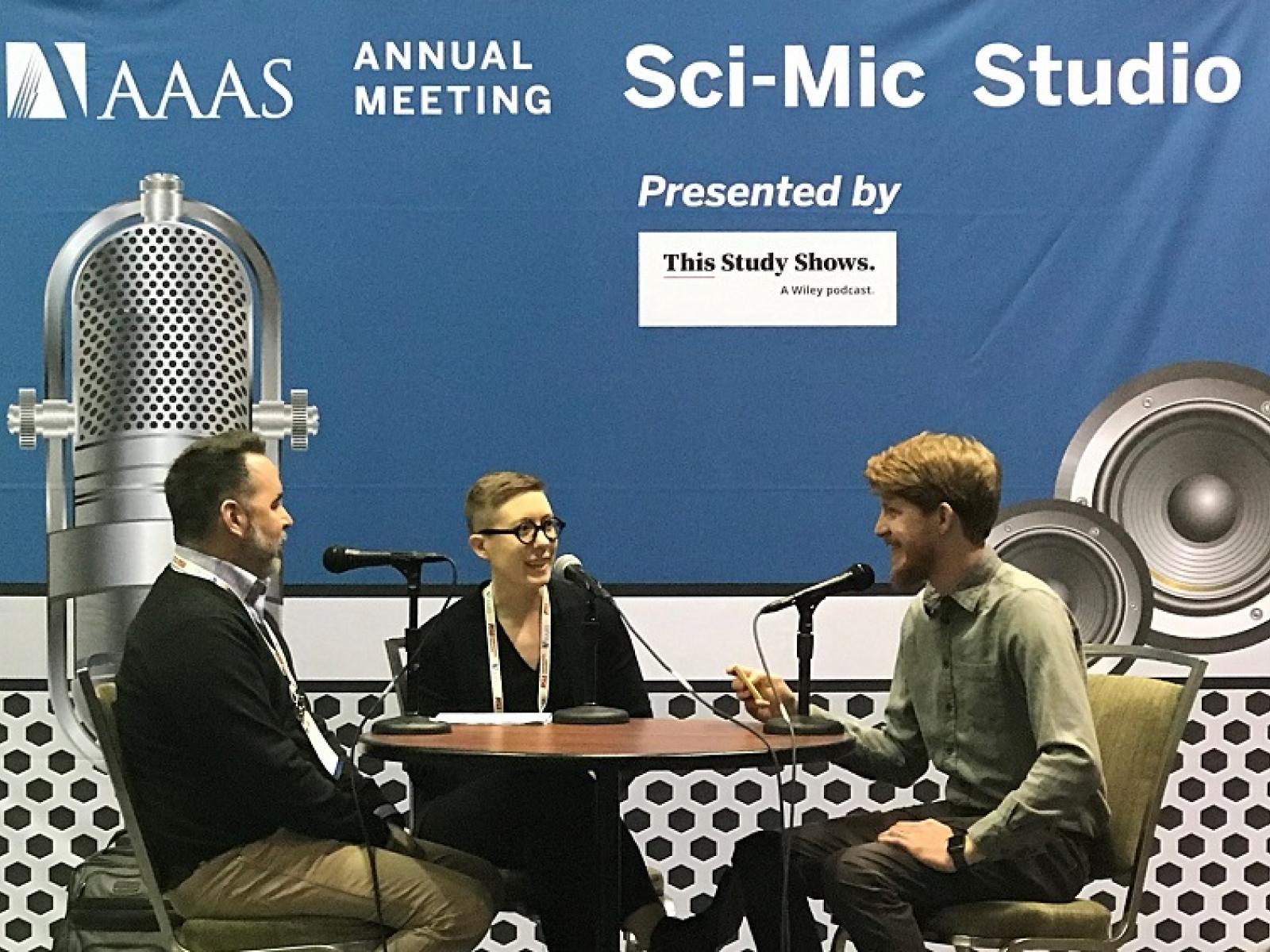PNNL Staff Featured on U.S. Department of Energy Podcast
Courtney Corley and Kyle Bingman join Direct Current podcast to discuss artificial intelligence

PNNL’s Courtney Corley (left) and Kyle Bingman (middle) discussed artificial intelligence with host Matt Dozier for DOE’s Direct Current podcast at AAAS annual meeting.
Two PNNL team members, Courtney Corley, a data scientist, and Kyle Bingman, an advisor on assured artificial intelligence (AI), were featured on a recent episode of the U.S. Department of Energy Direct Currents podcast.
The May episode of Direct Current, “AI: Safer, Smarter, More Secure,” was a special edition of the podcast recorded live during the 2020 American Association for the Advancement of Science (AAAS) annual meeting in Seattle, Washington in February.
Corley and Bingman were invited to discuss a concept called “assured AI” which is understanding the way AI algorithms arrive at certain decisions, the mechanisms for reaching those decisions, exploring what problems might arise, and how to make the process better. PNNL researchers are raising questions to try and answer how are we going to secure systems from outside interference as we add AI to more situations?
“For me, one of the things that’s most important is that we start accepting that this is potentially a very big risk. We've seen things happen over and over and over with technology where we make something, we rush to implement it, and then we realize it's vulnerable,” explained Bingman. “We want to do all these things, but at the same time we should be making it a priority to do this safely and securely.”
Understanding how AI is integrated into everyday systems and the potential safety and security concerns that arise with that is critical.
When it comes to using AI in science in the future Corley explained that, “More awareness and education needs to happen. We're going to be using it, it's coming whether we like it or not. And so whatever form it's in, we need to have a dialogue about the safety and security of it. I think, yes, let's use it, but let's help AI make us better, and smarter, and more effective human-machine teams as we go along.”
Published: May 21, 2020